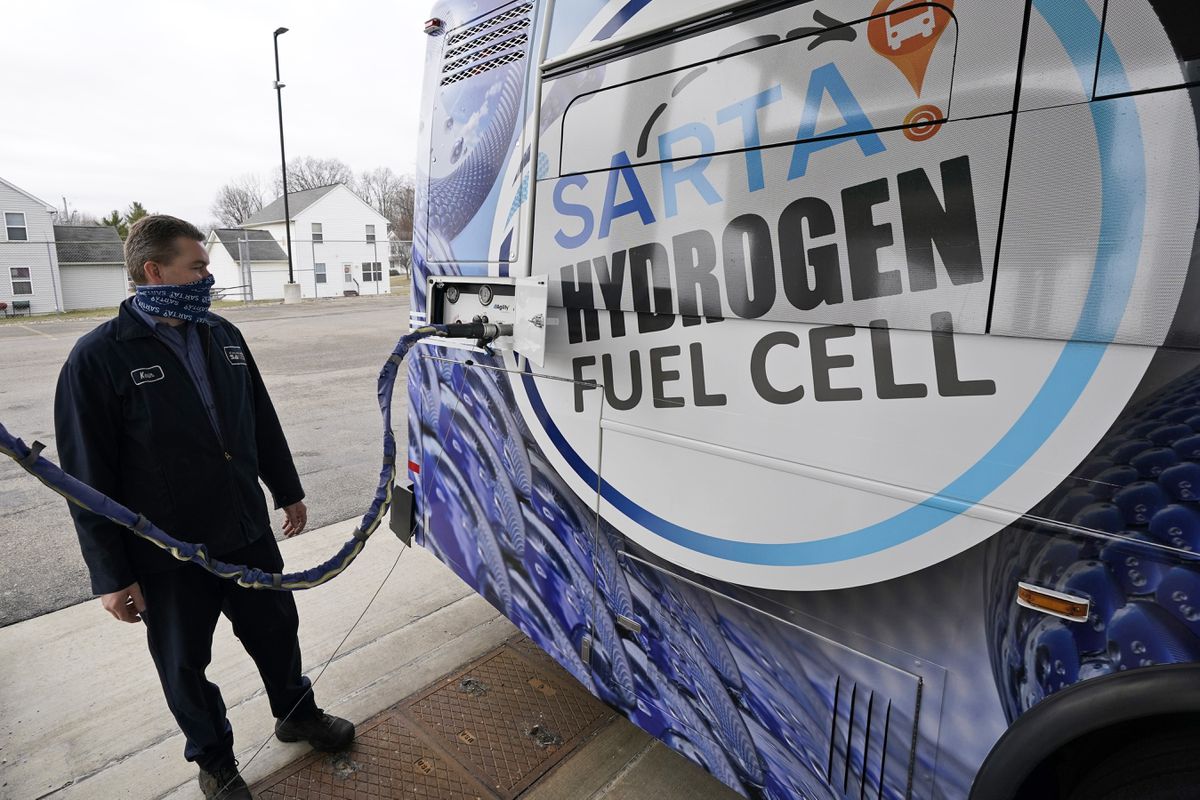The buses – made by El Dorado National and owned by the Stark Area Regional Transit Authority – look like any others.
Hydrogen, the most abundant element in the universe, is increasingly viewed, along with electric vehicles, as one way to slow the environmentally destructive impact of the planet’s 1.2 billion vehicles, most of which burn gasoline and diesel fuel.
Transportation is the single biggest U.S.
Indeed, a new study by researchers from Cornell and Stanford universities found that most hydrogen production emits carbon dioxide, which means that hydrogen-fueled transportation cannot yet be considered clean energy.
Yet proponents of hydrogen-powered transportation say that in the long run, hydrogen production is destined to become more environmentally safe.
Toyota, Kenworth and the Port of Los Angeles have begun testing hydrogen trucks to haul goods from ships to warehouses.
Volvo Trucks, Daimler Trucks AG and other manufacturers have announced partnerships, too.
In Germany, a hydrogen-powered train began operating in 2018, and more are coming.
It’s also been running vehicles for years: Around 35,000 forklifts in the United States, about 4 per cent of the country’s total, are powered by hydrogen.
Craig Scott, Toyota’s head of advanced technology in North America, says the company is perhaps two years from having a hydrogen truck ready for sale.
Kirt Conrad, CEO of Canton’s transit authority since 2009, says other transit systems have shown so much interest in the technology that SARTA takes its buses around the country for demonstrations.
The test at the Port of Los Angeles started in April, when the first of five semis with Toyota hydrogen powertrains began hauling freight to warehouses in Ontario, Calif., about 100 kilometres away.
Fuel cells, which convert hydrogen gas into electricity, provide a longer range than battery-electric trucks, fare better in cold weather and can be refuelled much faster than electric batteries can be recharged.
That advantage was important for London-based Green Tomato Cars, which uses 60 hydrogen fuel cell-powered Toyota Mirai cars in its 500-car zero emission fleet to transport corporate customers.
About 7,500 hydrogen fuel cell cars are on the road in the U.S., mostly in California.
Unlike with buses and heavy trucks, experts say the future of passenger vehicles in the U.S.
The world produces about 75 million tons a year, most of it in a carbon emission-creating processes involving steam reformation of natural gas.
The Cornell and Stanford study found that manufacturing blue hydrogen emitted 20 per cent more carbon than burning natural gas or coal for heat.
That’s why industry researchers are focused on electrolysis, which uses electricity to separate hydrogen and oxygen in water.
Currently, it costs more to make a hydrogen truck and produce the fuel than to put a diesel-powered truck on the road.
While a diesel semi can cost around US$150,000 depending on how it’s equipped, it’s unclear how much fuel cell trucks would cost.
